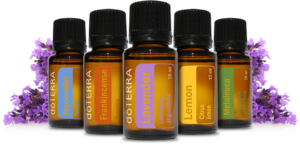Breaking news
Did you catch the Lyme and PANS Treatment Center on Fox 25 News last week? To watch the video clip, click here: https://www.boston25news.com/news/climate-change-could-lead-to-explosion-in-new-lyme-disease-cases-study-says/867842478
If you've got anxiety, don't blame your brain.
Your brain is the victim.
For anyone seeking cutting-edge information about tick-borne diseases, brain health, PANS/PANDAS, or alternative treatments for psychiatric or autoimmune conditions, this is the most exciting time of the year. In Autumn, prominent scientists and doctors from all over the world convene and share their latest research findings at the Lyme Disease Association/Columbia University scientific conference and the International Lyme and Associated Diseases Society's (ILADS) meeting. Here is a tiny sample of the take-home messages from those meetings.
- Don't blame the brain for psychiatric and neuropsychiatric conditions. Accumulating research reveals that the brain does not cause most neuropsychiatric conditions. Rather, it is the disruption of physical health via environmental irritants (e.g., mold and allergens), under-treated or undiagnosed infections (e.g., strep, Lyme, Powassan virus), inflammatory eating, and dysbiosis in the intestines, that hurts the brain. These physical health problems can not only inflame and interrupt the brain's routines processes but, even worse, they prevent the brain from accessing its wonderful repair and detoxify mechanisms.
- Thanks to amazing new imaging technologies, Bartonella (an infection transmitted by ticks, fleas, lice, and cats), has now been detected in skin tissue, synovial (joint) fluid, cartilage of hip surgery patients, the heart, and the brain. Imaging reveals that Bartonella is adept at creating and hiding from antibiotics within biofilms. At ILADS, Dr. Ericson showed that Bartonella biofilms even established a home-base in the PICC line of a patient receiving IV antibiotics! Clinical signs of Bartonella include unexplained (disproportionate) anxiety, streaky pink rash that looks like stretch marks, foot pain, and neurological symptoms.
- At ILADS, Dr. Moorcroft delivered an insightful lecture about the varied pathways to healing from tick-borne diseases and inflammatory conditions (e.g, PANS), emphasizing that a brain that feels "threat" cannot move into recovery. Healing and recovery happen when a patients feels "safe" and during deep sleep. Breathing, meditation, psychotherapy, detoxification, and clean eating are ways to access natural healing systems.
- Neuropsychological evaluations are useful in understanding a patient's cognitive and emotional well-being and providing recommendations and strategies specific to the suffering individual. Patients with persistent tick-borne diseases or PANS often remain intelligent in many ways, but according to recent research, they must recruit more areas of the brain and use significantly more energy in order to get their cognitive tasks done. This very likely wears them out, leaving them depleted. A good neuropsychological evaluation from a Lyme/PANS literate Neuropsychologist can examine these processes and help patients access school/work support. Patients with tick-borne diseases or PANS need support in learning how to best pace themselves given their unique profile. (The Lyme and PANS Treatment Center has three Neuropsychologists.)
Stay tuned in the next issue for more conference highlights....

If you are feeling alone, don't forget that LPTC offers FREE Q & A sessions on the last Sunday of every month from 6-7:30PM.
Seasonal Affective Disorder
by Dr. Sean Foss
Are you starting to feel the Winter Blues? When less daylight hours are available to us, many people start to feel depressed, their energy levels decrease, and it is much harder to get out of bed. Those limited sunlight hours can cause a drop in our serotonin and melatonin levels, which affect both our sleep and moods. In the world of Naturopathic medicine, one of the herbs we turn to is Rhodiola Rosea.
So how does Rhodiola Rosea help depression? It helps to improve the transportation of tryptophan and 5HTP across the blood brain barrier. These two hormones are needed to make serotonin, which is our “feel good” neurotransmitter.
Rhodiola is a powerhouse herb with many beneficial health properties. It is an herb used to:
- Improve neurotransmitter function by boosting up brain “chemicals” that makes us feel good, happy and relaxed (norepinephrine, dopamine, and serotonin)
- Decrease depression and anxiety
- Improve mood
- Memory improvement
- Reduce stress
- Reduce headaches
- Relax muscles
- Balance cortisol (stress hormone) levels
- Improve stamina, strength and endurance (used by lots of athletes)
- Protect and stimulate the immune system (increases production of natural killer cells)
- Improve recovery time after a workout
- Great for high altitude sickness
- Improve mental processes
Rhodiola Rosea works best when used in a combination of lifestyle changes and additional herbal treatments. To learn more about ways that you can combat SAD, contact Dr. Foss at Lyme and PANS Treatment Center (781) 923-7000 or Sean@lymeandpanscenter.com

What is anti-inflammatory eating and how can it help you feel better?
If you struggle with any of the following symptoms:
- Brain Fog
- Headaches
- Digestive Upset
- Sugar / Caffeine Cravings
- Fatigue
- Insomnia
- Joint pain/Lyme Disease
- Low mood /Anxiety/OCD
- Skin Issues
- Auto-immune conditions
Join our Certified Health Coaches Claire Haddad and Tammy Ruggiero and learn how food choices can improve your life!
When: Thursday, November 15th 10:00 -11:30 am
Where: Lyme and PANS Treatment Center, Cohasset
Cost: $40 – Reserve your spot by calling 781-923-7000

Need better clues to understand your child's or teen's brain?
There IS hope!
Children and adults who experience persistent physical health problems often complain of "brain fog", memory problems, unpredictable mood swings inattention, distractibility, inability to follow-through with school or work projects, restlessness, or anxiety. There ARE ways to help disentangle what is going on in the brain. In fact, this is why the Lyme and PANS Treatment Center was established!
- Laboratory tests: Did you know that there are now several panels of blood tests that can show whether an individual has signs of inflammation in the brain? With increasingly weak blood-brain-barriers, and the recent discovery that the brain has a lymphatic system, we now know for certain that many patients are experiencing brain inflammation, particularly in areas of the brain responsible for memory and anxiety, When these blood tests are positive, treatment can address the root causes of the inflammation (not simply trying to mask the symptom).
- Neuropsychological evaluations: These evaluations examine your child's learning style, executive functioning skills, emotional well-being, need for educational accommodations, and much more. If you suspect that your child may be misdiagnosed or if you just need a better understanding of his skills in order to provide better learning support, or improve family communications, neuropsychological results can be enlightening.

Essential Oils 101
Come to the next essential oils workshop on Wednesday November 14th at 11:00AM. Learn about how these wonderful oils can work for you and your family. Use our testers, ask our experts questions and leave with free samples. You must register ahead! Call 781-923-7000 for more details. Only $25!
These services at the Lyme and PANS Treatment Center are available to all. We welcome patients with or without Lyme or PANS!
- Breathwork
- Food Sensitivity Testing
- Health Coaching
- Neuropsychological Evaluations
- Psychological Evaluations
- Cognitive Behavioral Therapy
- Stress Management Training
- Parenting Support
- Naturopathic Healthcare
- Testing and evaluations for Tick Borne Diseases
- Massage Therapy
For any of the above or for integrative Medical Care services, call us at 781-923-7000.
CONTACT US
Call 781-923-7000 or email office@lymeandpanscenter.com
